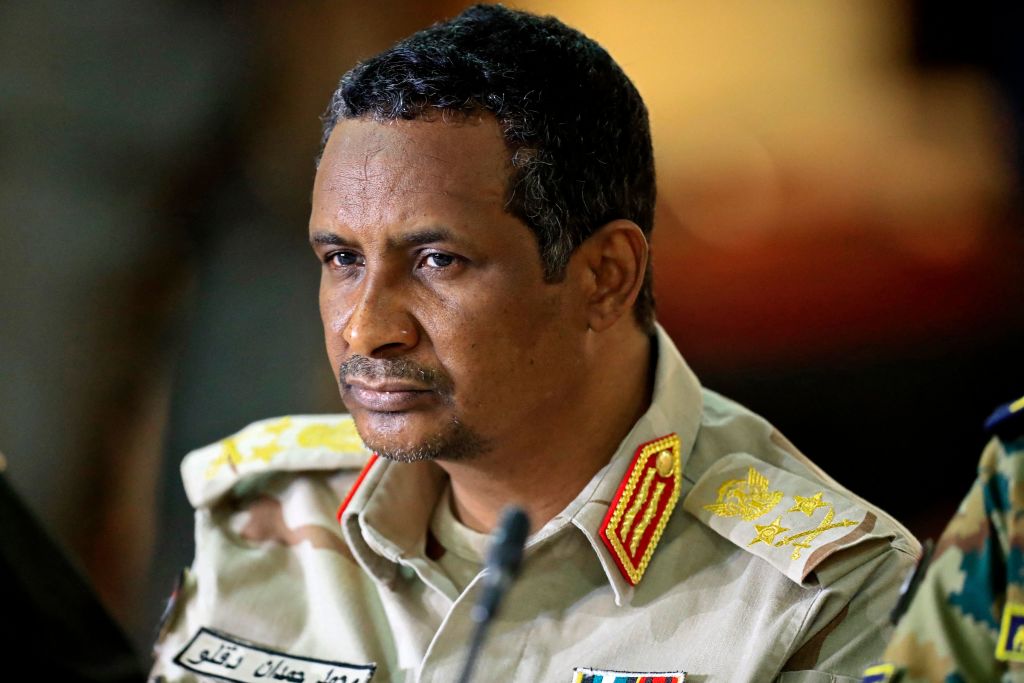ADF STAFF
Since Sudan’s military coup a year ago, the nation’s economy has been in turmoil. Economist Khaled Mohamed Ahmed believes the military’s extensive business interests play a significant role in the unrest.
Ahmed told Sudan’s Radio Dabanga that, in his assessment, the coup was intended to protect the military’s business holdings at the expense of the population.
Since the coup in October 2021, more than a quarter of Sudan’s 39 million residents face severe hunger, double the typical number for late in the year. Although hunger once primarily affected rural areas, it now has spread to cities.
“We have no basic services, and children are dying because of malnutrition,” Ahmed Adam, a resident of eastern Sudan, told Radio Dabanga. “We want the government and international organizations to help us.”
Because of the coup, international agencies suspended $4.4 billion in aid to Sudan. The aid would have supported projects in agriculture, energy and water along with $500 million in direct budget support.
Before the October 2021 coup, Prime Minister Abdallah Hamdok and his allies had begun investigating the military’s holdings with the goal of rooting out corruption and converting military enterprises into tax-paying businesses.
From farm fields to oil fields, by some estimates, Sudan’s military controls about 80% of the country’s economy. In some cases, those same economic interests fund military operations outside the government budget.
The Rapid Support Forces (RSF), led by Gen. Mohamed Hamdan Dagalo, also known as Hemedti, took control of the Jebel Amer gold mining area in Darfur in 2017. The RSF has ties to the Russian Wagner Group mercenary organization, which has mining operations of its own in Sudan.
Ahmed points out that as part of the transition to civilian rule, Hamdok planned to create a cotton stock exchange and a chamber of commerce to drive foreign trade.
The coup blocked those plans.
A recent analysis by nongovernmental organization Global Witness found that Hemedti and his family are deeply involved in Sudan’s gold industry. His brother and nephews own the Al Gunade gold company. Hemedti sits on its board.
Hemedti’s brother is reportedly the deputy leader of the RSF, showing how closely the two organizations are connected.
As Sudan’s military leaders protect their own interests, the country’s citizens feel the pain.
Inflation is at nearly 200%, and food shortages caused by the Russian invasion of Ukraine have strained residents’ ability to feed their families. In the capital, the water system failed earlier this year, forcing residents to buy water from private tanker trucks — if they had the money.
“Since April water hasn’t flown through my kitchen’s pipes, and the Nile is just a kilometer away,” Zahra Sharif, a resident of Khartoum’s al-Shigla suburb, told Reuters in June.
Officials at Khartoum’s water authority say the government is not maintaining water stations and pipes. Power failures knock water pumps offline, further complicating things.
Those same power failures create chaos on Khartoum’s roads as traffic signals fail to work consistently.
The October 2021 coup and the subsequent suspension of aid had a significant impact on Sudan’s economy, Finance Minister Jibril Ibrahim told Reuters.
“We had big projects in electricity, irrigation and rural development,” he said. “And this all stopped.”

